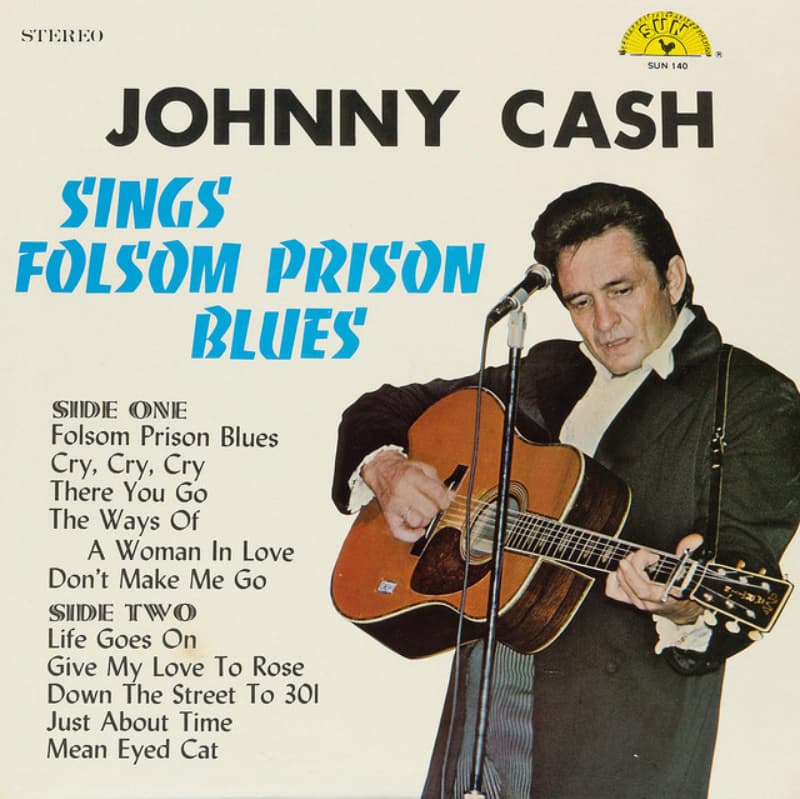
Johnny Cash – Folsom Prison Blues: A Haunting Reflection on Regret and Redemption
In the annals of American music, few songs resonate as deeply as “Folsom Prison Blues” by the legendary Johnny Cash. Released in 1955 as part of his debut album, With His Hot and Blue Guitar, this haunting track climbed the charts to become a definitive piece of Cash’s storied career. Upon its release, the song captured the imagination of a nation, peaking at number four on the Billboard Country & Western Best Sellers chart. Its enduring popularity is a testament to Cash’s ability to weave narrative and melody into something timeless.
The song’s origins are as intriguing as its melody. Written by Cash while he was serving in the United States Air Force, “Folsom Prison Blues” draws inspiration from two distinct sources: the film Inside the Walls of Folsom Prison and Gordon Jenkins’ song “Crescent City Blues.” Cash’s genius lay in his ability to take these inspirations and craft a song that was uniquely his own, imbuing it with a raw authenticity that resonated with listeners.
At its core, “Folsom Prison Blues” is a somber reflection on regret and redemption. The protagonist’s lament about being “stuck in Folsom Prison” while watching life pass him by on a distant train evokes a profound sense of longing and loss. The imagery of the train — a symbol of freedom and movement — starkly contrasts with the static confinement of prison life, encapsulating the universal human desire for escape and renewal.
For many, the song evokes powerful memories of a bygone era. It speaks to anyone who has ever felt trapped by their circumstances or haunted by past decisions. The line “I shot a man in Reno just to watch him die” is chilling in its simplicity, yet it underscores the theme of remorse that permeates the song. It’s this blend of vivid storytelling and emotional depth that allows “Folsom Prison Blues” to transcend its genre, reaching into the hearts of listeners across generations.
The live recording of Johnny Cash’s performance at Folsom State Prison in 1968 added another layer to the song’s legacy. Cash’s decision to perform for inmates was groundbreaking at the time and showcased his empathy for society’s marginalized individuals. This iconic performance breathed new life into the song, propelling it back onto the charts and reaffirming Cash’s status as a voice for the voiceless.
Listening to “Folsom Prison Blues” today, one can’t help but feel a deep connection to its themes — themes that are as relevant now as they were decades ago. It serves as a poignant reminder of life’s complexities, where choices have consequences, yet there’s always room for redemption. For older listeners, especially those who grew up with Johnny Cash’s music echoing through their homes, revisiting this track might stir memories of simpler times when music was a balm for life’s challenges.
In conclusion, Johnny Cash’s “Folsom Prison Blues” remains a powerful testament to his artistry and humanity. Its blend of storytelling, emotional resonance, and cultural impact ensures that it will continue to be cherished by music lovers for generations to come. As you listen to this classic tune, allow yourself to be transported back in time, reflecting on your own journey through life’s trials and triumphs.